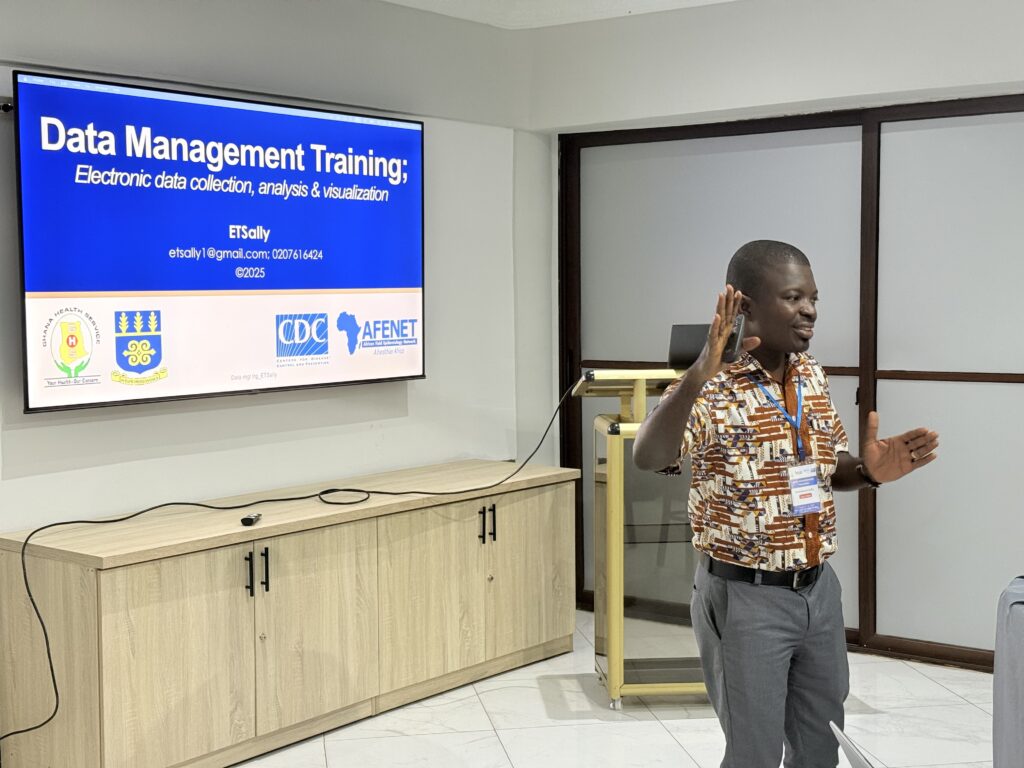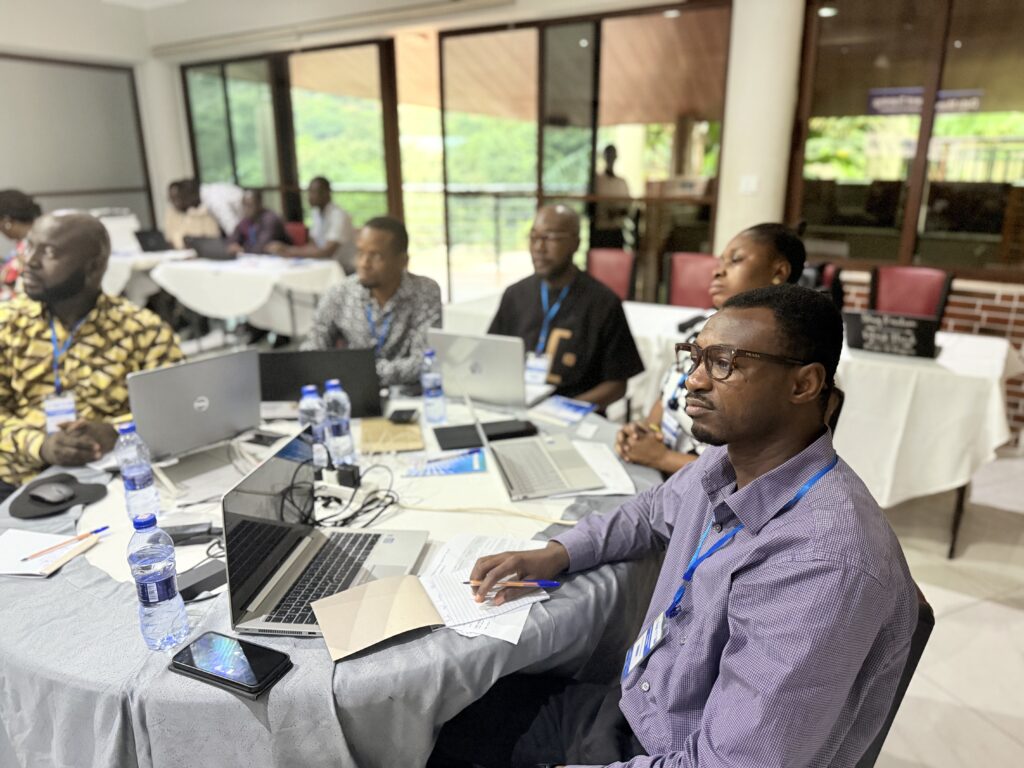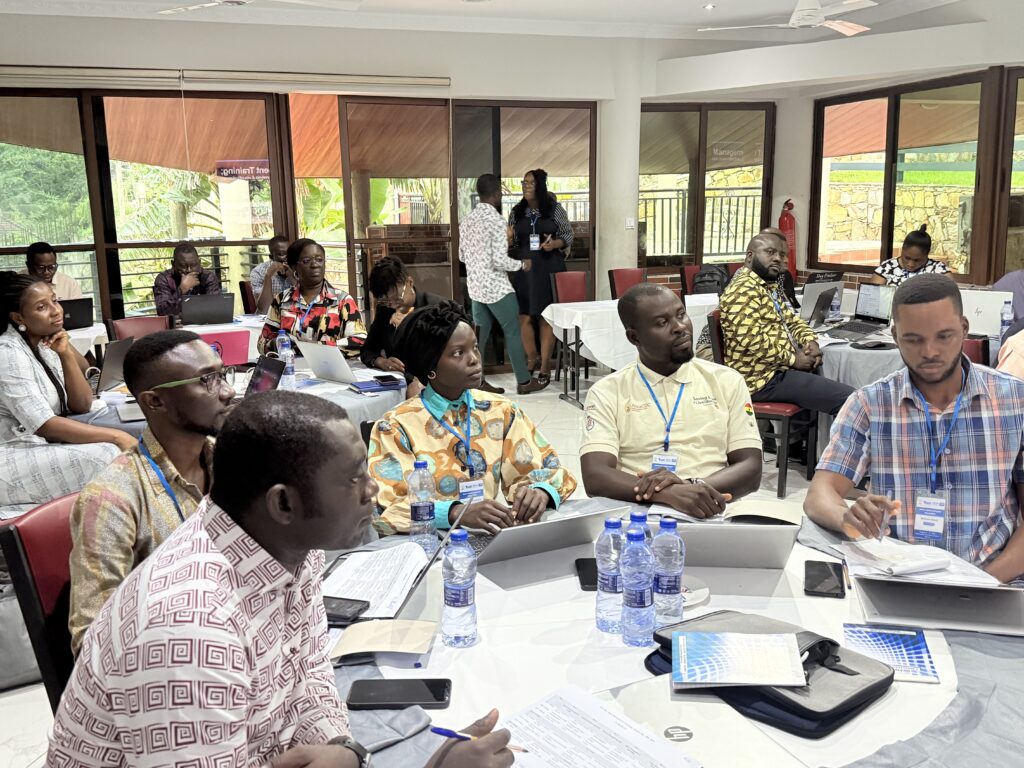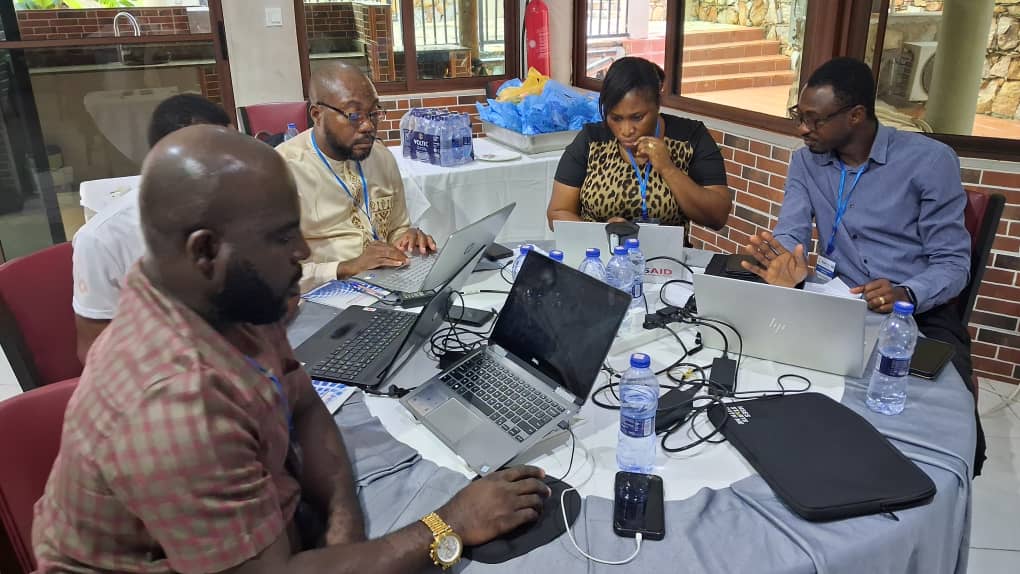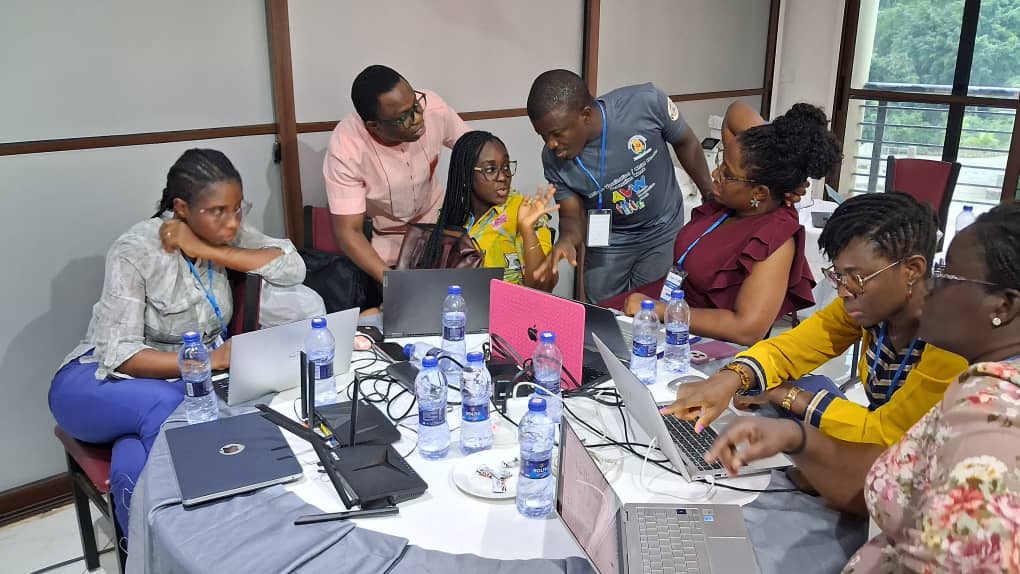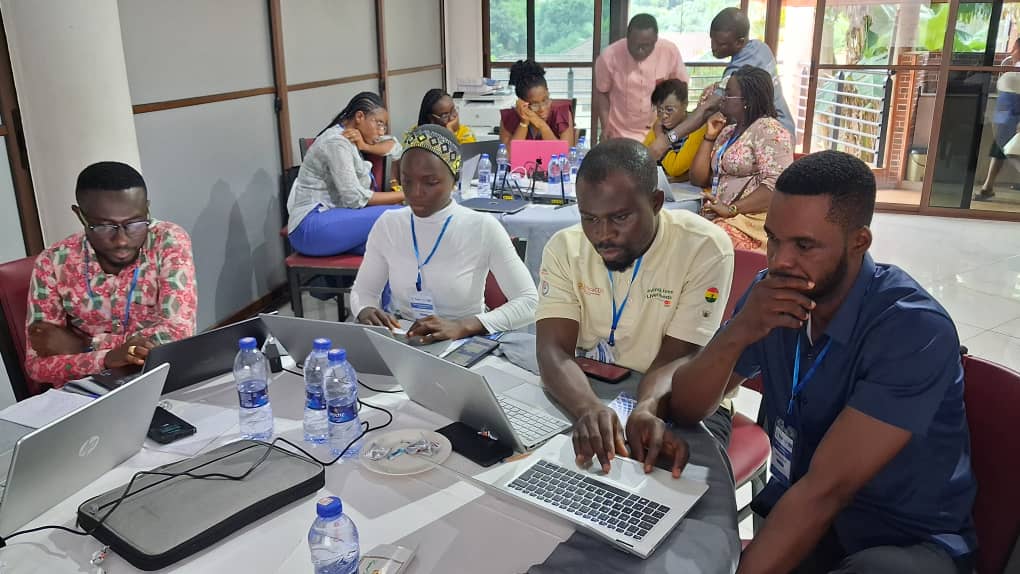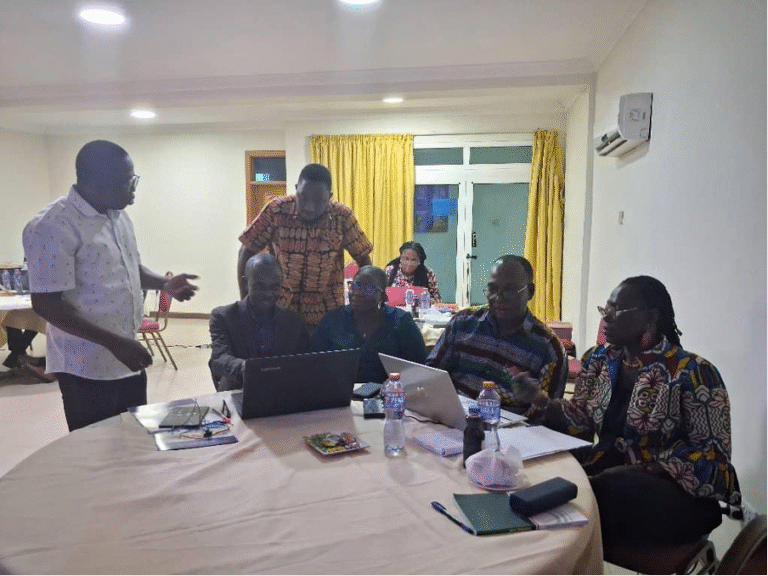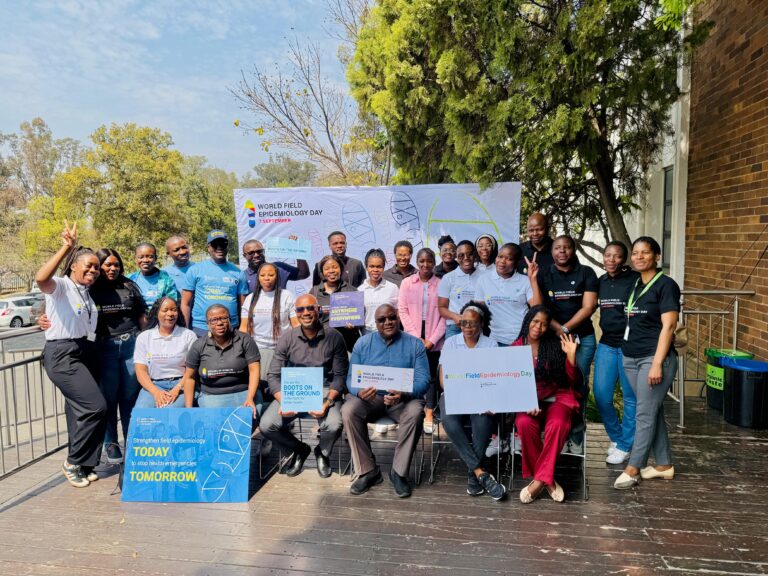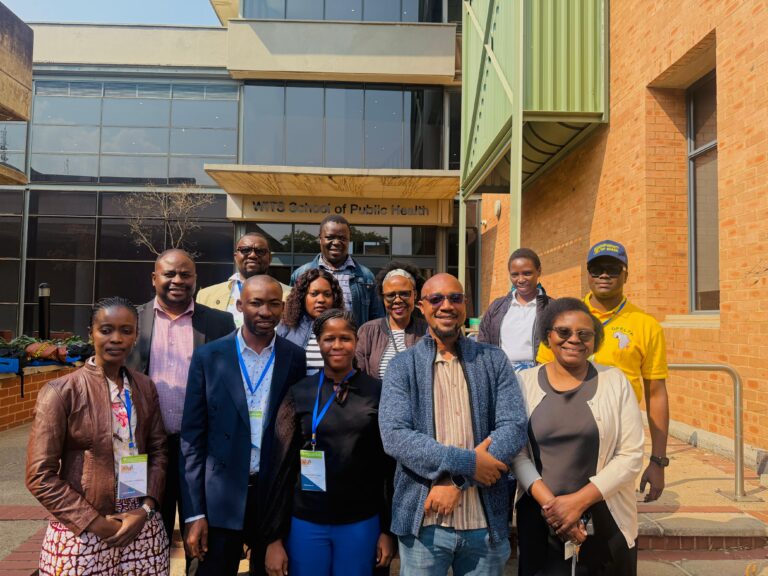AFENET Collaborates with the US CDC to Conduct Data Management Training for Public Health Officers in Ghana
In line with efforts to strengthen data-driven decision-making and build the capacities of health personnel in data analysis, the African Field Epidemiology Network (AFENET), in collaboration with the United States Centres for Disease Control and Prevention (US CDC) is conducting a capacity-building workshop on management and visualization. The training is being held at the Hephzibah Christian Centre, Aburi, Ghana, from 4th to 8th August 2025, and convenes 22 public health officers from sub-national Public Health Emergency Operartions Centres, faculty and alumni of the Ghana Field Epidemiology and Laboratory Training Program (FELTP).
Participants will gain knowledge and practical experience in the use of electronic data collection tools, data importation and cleaning, data modelling and transformation, designing effective dashboards, interactive data storytelling, among others. This is essential for improving the quality of reporting, enhancing evidence-based planning, and strengthening health systems performance at all levels. The course combines theoretical instruction with practical application, emphasizing the use of Microsoft Excel, Open Data Kit (ODK), and Power BI for data collection, cleaning, visualization, and dashboard development. Core modules delivered during the workshop include:
- Fundamentals of data analysis and its application in public health surveillance and response
- Introduction to ODK, Power BI and Google Looker Studio
- Use of the ODK ecosystem
- Data cleaning, modelling and transformation techniques
- Introduction to Power BI and interactive dashboard design
- Integrating ODK, Power BI, Google Sheets & Looker
The sessions are highly participatory, with a strong emphasis on experiential learning. Participants engage in hands-on exercises using real-world or simulated datasets, enabling them to apply key concepts in practical scenarios. Group-based activities and facilitated discussions further promote peer learning and cross-regional knowledge sharing, reinforcing collaboration among the participants.
